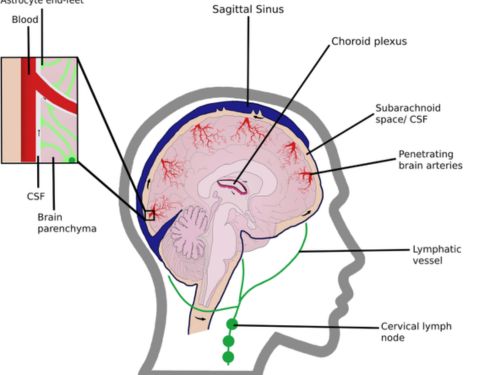Sleep is a complex and essential physiological process that involves intricate interactions within the brain, and one of its most crucial phases is deep sleep. In this comprehensive exploration, we unravel the neuroscience behind deep sleep, delving into the intricate mechanisms and the profound impact it has on our overall well-being.
Understanding the Phases of Sleep
Before we dive into the depths of deep sleep, let’s briefly overview the various phases of sleep. Sleep is generally categorized into two main types: Rapid Eye Movement (REM) sleep and Non-Rapid Eye Movement (NREM) sleep. NREM sleep further divides into three stages, with the third stage being deep sleep, also known as slow-wave sleep (SWS).
The Journey into Deep Sleep
Transitioning from Light to Deep Sleep
As we progress through the sleep cycle, we first enter the lighter stages of NREM sleep. As we move into deeper stages, our brain activity slows down, leading us into the profound tranquility of deep sleep.
Brainwave Dynamics in Deep Sleep
The brainwaves during deep sleep exhibit a distinct pattern known as delta waves. These slow, high-amplitude waves characterize the deep sleep stage and are a hallmark of the restorative processes occurring within the brain.
The Role of the Thalamus and Cortex
Thalamic Inactivity and Sensory Disconnect
During deep sleep, the thalamus, a crucial relay center in the brain, exhibits reduced activity. This diminished thalamic function results in a temporary disconnection of sensory information from the external world, contributing to the sense of isolation from the surrounding environment.
Cortical Involvement in Memory Consolidation
While the thalamus experiences decreased activity, the cortex, the outer layer of the brain responsible for higher cognitive functions, plays a vital role in deep sleep. Memory consolidation primarily occurs during this phase, where the brain processes and stores information from the day.
Hormonal Regulation in Deep Sleep
Growth Hormone Release for Physical Restoration
Deep sleep is intricately linked to the release of growth hormone. This hormone plays a pivotal role in physical restoration, contributing to the repair and regeneration of tissues, muscles, and bones.
Cortisol Suppression for Stress Management
Conversely, cortisol, a stress hormone, experiences a decline during deep sleep. This suppression is crucial for stress management and overall emotional well-being.
The Glymphatic System’s Nightly Detox

The Glymphatic System Unveiled
A relatively recent discovery in neuroscience, the glymphatic system, becomes particularly active during deep sleep. This unique system functions as a waste clearance mechanism, removing toxins and metabolic byproducts that accumulate in the brain throughout the day.
Implications for Neurological Health
The glymphatic system’s nightly detox has significant implications for neurological health. Its activation during deep sleep may contribute to reducing the risk of neurodegenerative conditions, emphasizing the importance of quality sleep in maintaining brain health.
Emotional Processing and Regulation
The Role of Deep Sleep in Emotional Resilience
Deep sleep plays a crucial role in emotional processing and regulation. The consolidation of emotional memories during this phase contributes to emotional resilience and the ability to navigate stress and challenges effectively.
Impact on Mood and Mental Well-Being

A deficiency in deep sleep has been linked to mood disorders and an increased susceptibility to stress. Understanding the neurobiological foundations of deep sleep sheds light on its role in promoting mental well-being.
Sleep Disorders and Disruptions
Disruptions in the Architecture of Deep Sleep
Various factors, including lifestyle choices, stress, and medical conditions, can disrupt the natural progression of deep sleep. Such disruptions can lead to sleep disorders like insomnia or sleep apnea, underscoring the need to address underlying issues for optimal sleep quality.
The Neurological Consequences of Sleep Disorders
Chronic sleep disorders not only impact the quantity but also the quality of deep sleep. This can have cascading effects on cognitive function, emotional stability, and overall neurological health.
Enhancing Deep Sleep Through Lifestyle Choices
Creating an Optimal Sleep Environment
Optimizing your sleep environment is crucial for promoting deep sleep. This involves considerations such as room darkness, temperature, and minimizing noise disruptions, fostering an atmosphere conducive to quality rest.
Implementing Consistent Sleep Hygiene Practices
Consistent sleep hygiene practices contribute to the regularity of deep sleep cycles. Maintaining a consistent sleep schedule, limiting screen time before bedtime, and practicing relaxation techniques can enhance the quality of deep sleep.
The Interplay Between Deep Sleep and Dreaming

Navigating the Dreaming Phase in Deep Sleep
While dreaming often associates with REM sleep, research suggests that dreams can also occur during deep sleep. Understanding the interplay between dreaming and deep sleep provides a more nuanced perspective on the complexity of the sleep cycle.
Potential Functions of Dreaming in Deep Sleep
The functions of dreaming during deep sleep are a subject of ongoing research. Some theories propose that it may contribute to memory consolidation, emotional processing, or serve as a mechanism for cognitive integration.
Conclusion: Embracing the Power of Deep Sleep
In conclusion, the neuroscience of deep sleep is a captivating journey into the inner workings of the brain during this vital phase of the sleep cycle. From hormonal regulation to emotional processing and the detoxification of the brain, deep sleep plays a multifaceted role in promoting overall health and well-being. By understanding the neuroscience behind deep sleep, we can make informed lifestyle choices to optimize this critical phase and reap the numerous benefits it offers.
